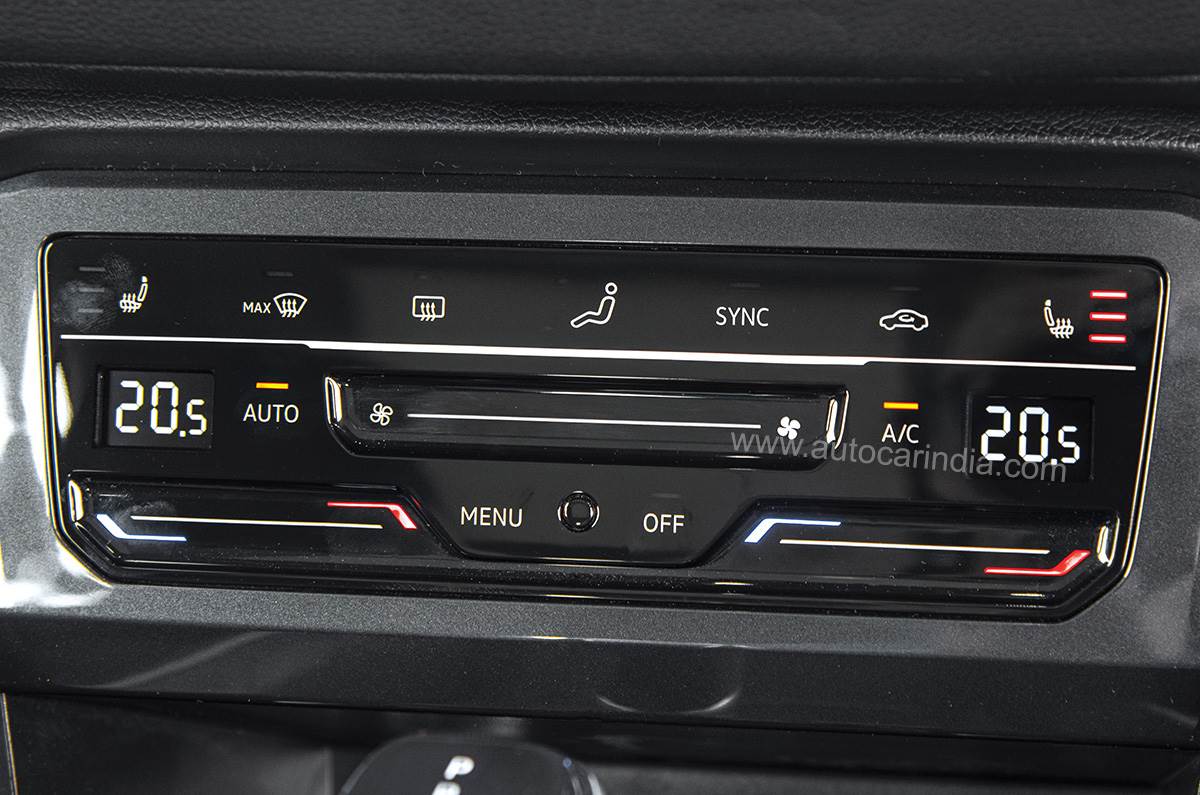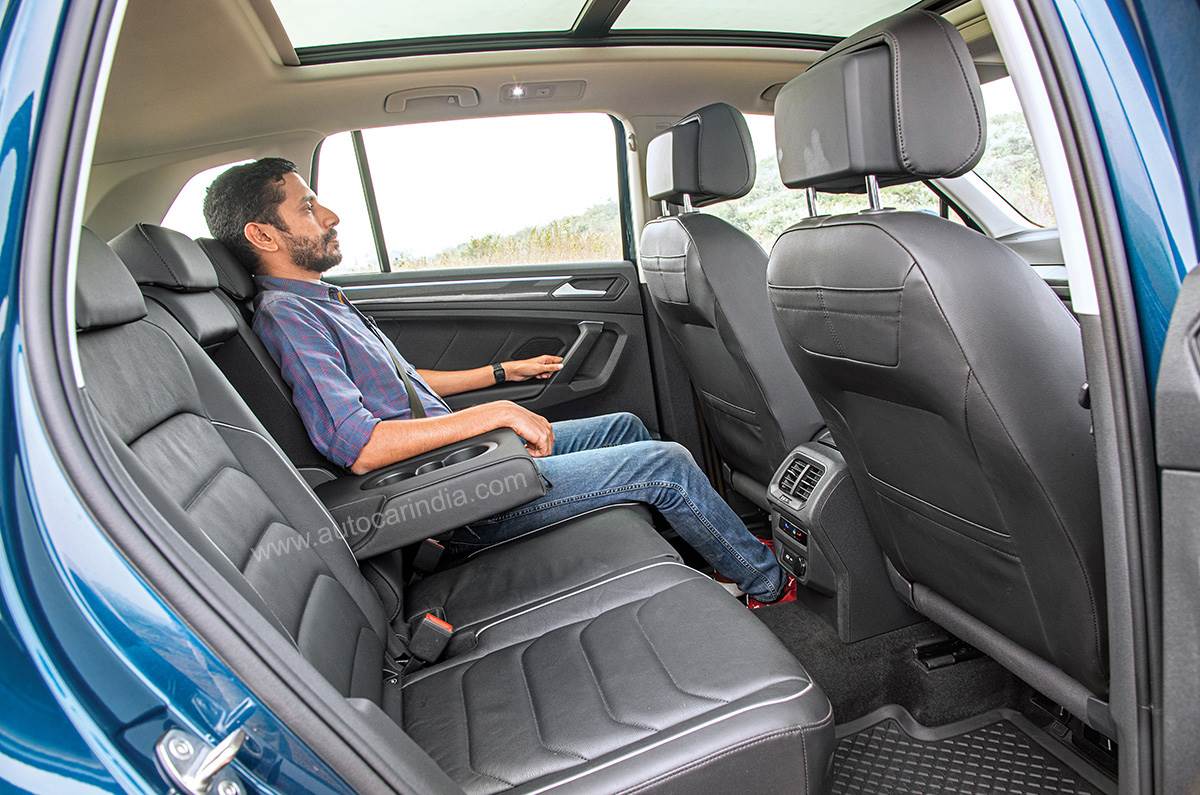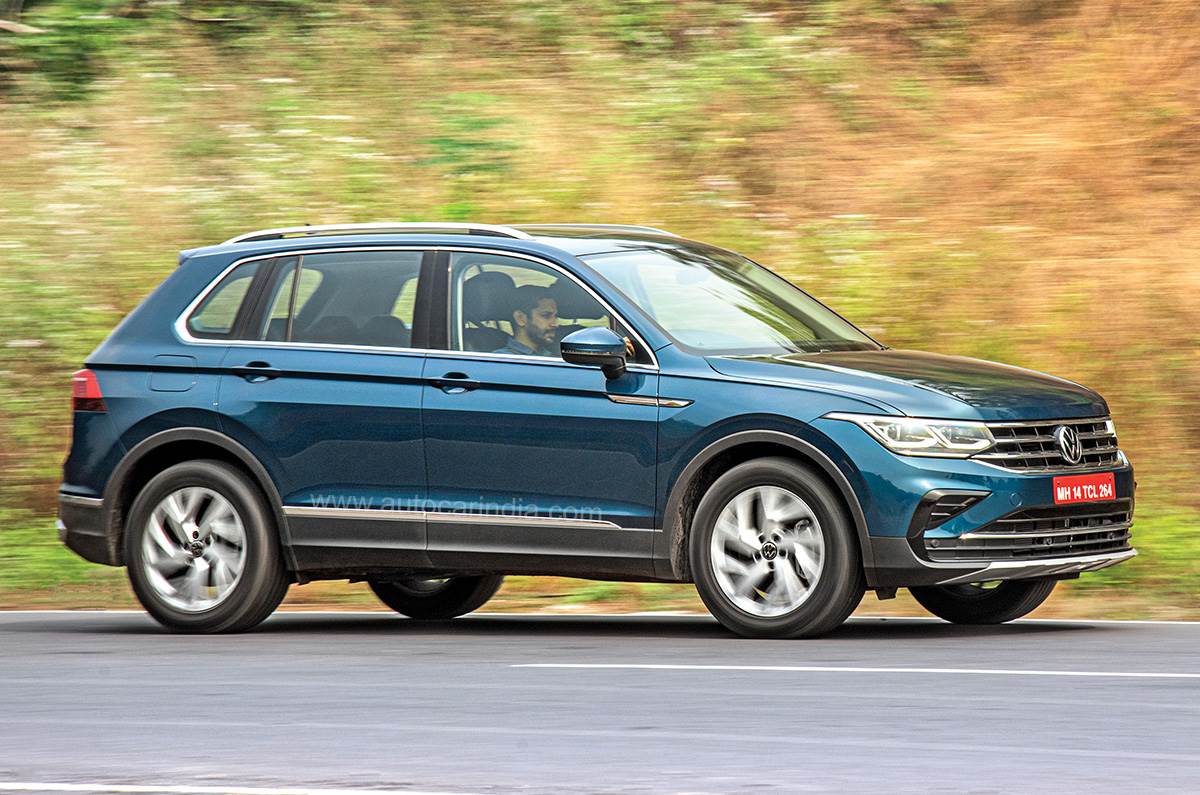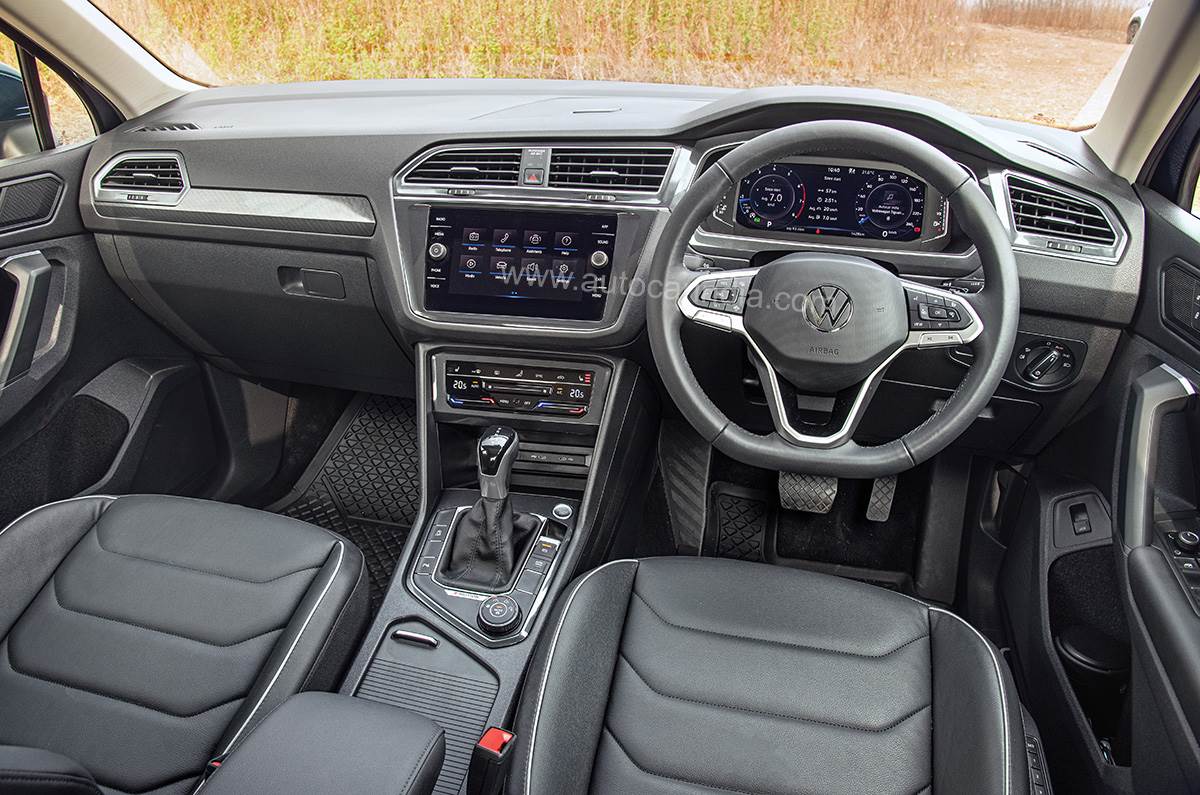VW’s flagship SUV goes back from seven seats to five and also gets a facelift. Has it found its sweet spot this time?
In case you’d lost track of the Volkswagen Tiguan (not to be confused with the smaller Taigun), here’s a quick recap. It was a 5-seat diesel premium SUV assembled in India and launched in 2017, touted by VW as being a cheaper alternative to compact luxury SUVs like the BMW X1 and Mercedes-Benz GLA. Then, when BS6 norms rolled around, VW discontinued it and replaced it with its 7-seat sibling, the Tiguan Allspace. Except this one was a CBU import and it ditched the diesel engine for a 2.0 TSI petrol. And now, at the end of 2021, the 5-seat version has returned and replaced the Allspace at the top of the VW India pecking order. It’s locally assembled again and it’s kept the petrol engine from the 7-seater, but it’s also been given a facelift. Up to speed? Good.
Subtle does it
Changes at the rear include more chrome, reworked tail-lights and ‘Tiguan’ in the tailgate’s centre.
The big update on the outside is at the front. Gone are the blocky headlamps, grille and bumper, and in their place is a more flowing, dare we say more emotional, design that’s in line with newer VWs. The headlamps extend onto the flanks like the arms on a pair of sunglasses, and within them you’ll find new DRL signature and ‘IQ Light’ beams – VW Speak for Matrix adaptive LED headlamps. There’s lots more chrome in the grille this time, and even some in the front bumper. Around the sides it’s the same straight-laced and crease-heavy profile as before, with the exception of a new design for the 18-inch alloy wheels. And finally at the rear, there are reprofiled LED tail-lamps, more chrome in the bumper, and the Tiguan nameplate has now moved to the centre of the tailgate. You’ll also notice the new, two-dimensional VW logo incorporated all around.
Inside too, the basic design of the cabin is largely unchanged. It’s still an all-black cabin, which many will find just a bit too dull, but it’s also incredibly well built. Fit and finish are all but flawless and just about every surface is soft-touch. What’s changed? There’s VW’s new-generation steering wheel, which feels like a long-overdue upgrade from the old wheel that’s been in circulation for about a decade. You now get a 10-inch digital instrument cluster (like in the Allspace) with three configurable displays, the 8.0-inch touchscreen uses VW’s new operating system, and the gear selector too is of a new design. The USB ports are all Type C now, and you can choose a colour (from among 30) for the ambient lighting this time.
A change we’re not so hot on is the shift from rotary knobs to touch panels for the AC controls; they’re distracting to use on the move. Other feature standouts are heated leather seats (ventilated ones would have been ideal), three-zone climate control, on- and off-road drive modes and a panoramic sunroof, but what we’d also have liked to see at this price is a 360-degree camera and wireless phone charging.

Touch AC controls a pain on the move.
The sculpted seats, front and rear, can feel a little snug for larger frames, but they’re very comfortably cushioned. Rear-seat space, as before, is ample, and there’s even plenty of thigh support from the seats. A middle passenger will find it a squeeze, though, and will have to contend with a large centre console between their feet. What’s more, you can adjust the seat recline angle and slide the bench forward or back to liberate more luggage room, should you need it. Not that you would, with 615 litres on offer, and the option to split-fold the backrest 40:20:40.

Huge on space and comfy too; backrest recline angle can be set adjusted to suit.
To the green pump
As with every VW Group car in India now, the updated Tiguan is petrol only, and it’s largely for the best that they opted to use the 2.0 TSI rather than the 1.5 TSI, even though you can have it with the smaller engine overseas. Not only does this give you a solid 190hp and 320Nm to play with, it also helps separate the Tiguan from its lesser siblings, the Taigun and T-Roc. However, we say ‘largely’ for the best, because if you’re not extremely careful, this engine can have a drinking problem, as we’ve observed in the Allspace and Skoda Superb. This is despite the use of engine stop-start and decoupling the engine during coasting, and though we didn’t do an instrumented fuel efficiency test, it did fare a little better than the Allspace, nudging the 10kpl mark in mixed driving.
That aside, however, it’s a fine motor in the vein of many great TSIs that have gone before it. The Tiguan even feels a little sprightlier and lighter on its feet than its Allspace sibling, and in a quick performance test, it did 0-100kph in under 8.5sec (it even has Launch Control). Don’t, however, mistake this for an outright sporty engine, because it isn’t. Yes, the DSG gearbox is quick to shift as always, but the 2.0 TSI in this guise doesn’t enjoy being stretched too hard, and is more comfortable at eight-tenths (helps with fuel consumption too). Driven like this, you’ll better appreciate its ample mid-range, and improved refinement compared to the diesel.

At just about any speed, the Tiguan’s all-encompassing ride quality soaks up everything.
It’s at this pace you’ll also be reminded of what a sound dynamic package it is. There’s that brilliant European solidity with which it goes about its business, and just beyond a sliver of underlying firmness exists an all-conquering ride quality. The tall 55-profile tyres around 18-inch wheels, combined with robust suspension, can take an absolute pounding from the worst Indian roads can throw at them. Changing drive modes doesn’t affect the suspension, but then you don’t need it to; the standard set-up is just that good. The suspension also affords it good body control in the corners, and there’s plenty of grip from the AWD system too, but like with the engine, you don’t want to push too hard. That’s because the steering, though sharp enough for everyday use, isn’t one to coax you into a spirited drive, and this, ultimately, is a big heavy SUV that’s geared more to comfort.
’Guan for consideration
It may have been cheaper than SUVs from luxury brands, but compared to its peers in the premium SUV space, the old Tiguan was a pricey affair. Four years later, this new one doesn’t change that impression. At Rs 31.99 lakh (ex-showroom, India), it’s out of the league of the Compass and Tucson, and duking it out instead with the likes of the Citroen C5 Aircross. Moreover, with a petrol engine, you aren’t exactly recouping the sticker price with running costs over time. Yes, with petrol prices the way they currently are, that thirsty engine will likely factor into the buying decision. But, if you’re fine with that, what you’re getting is a premium SUV that does just about everything near-perfectly. It’s luxurious, well made, well equipped, comfortable, refined, spacious and even pretty decent to drive. In fact, it still delivers on that promise VW made – it is pretty much everything you want from a luxury SUV, at a (slightly)lower price.


























